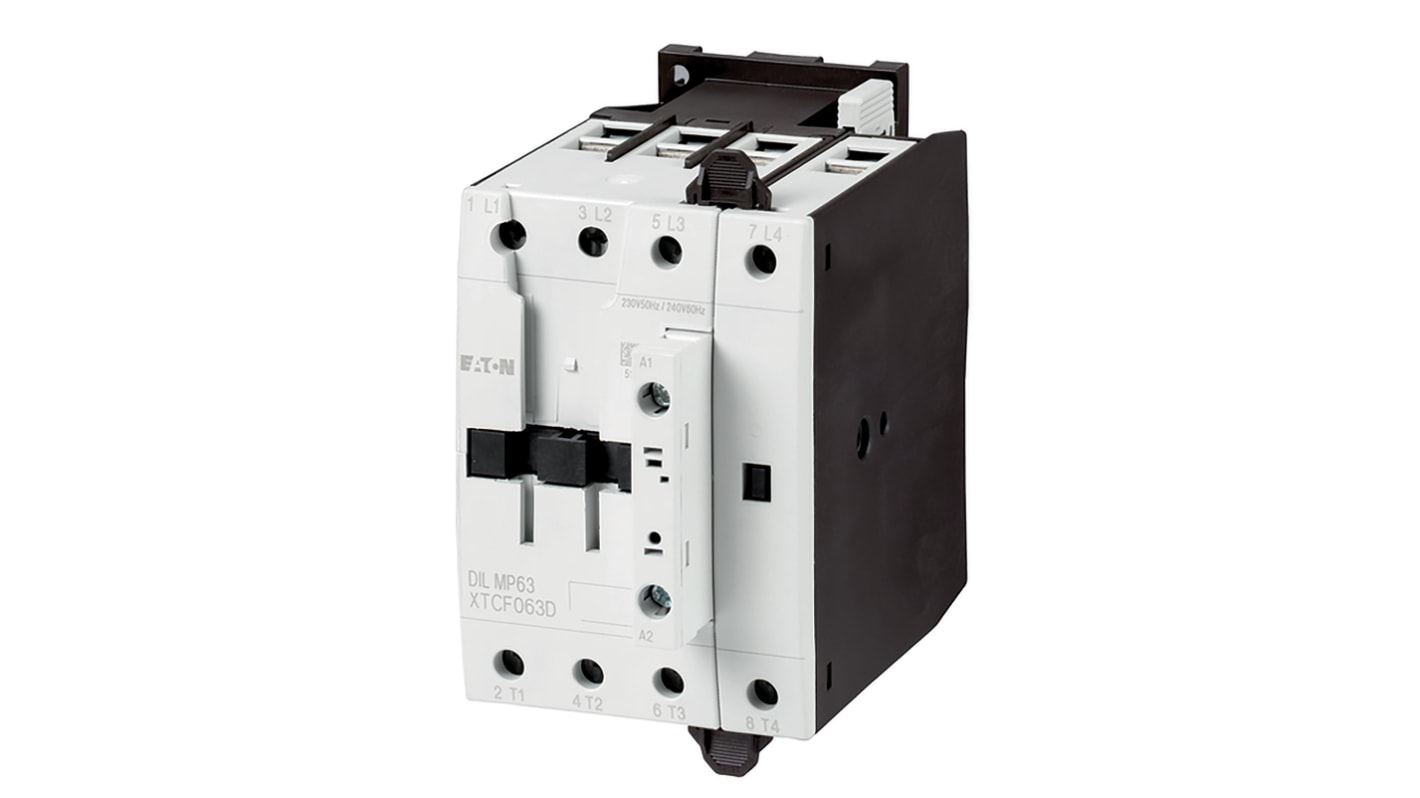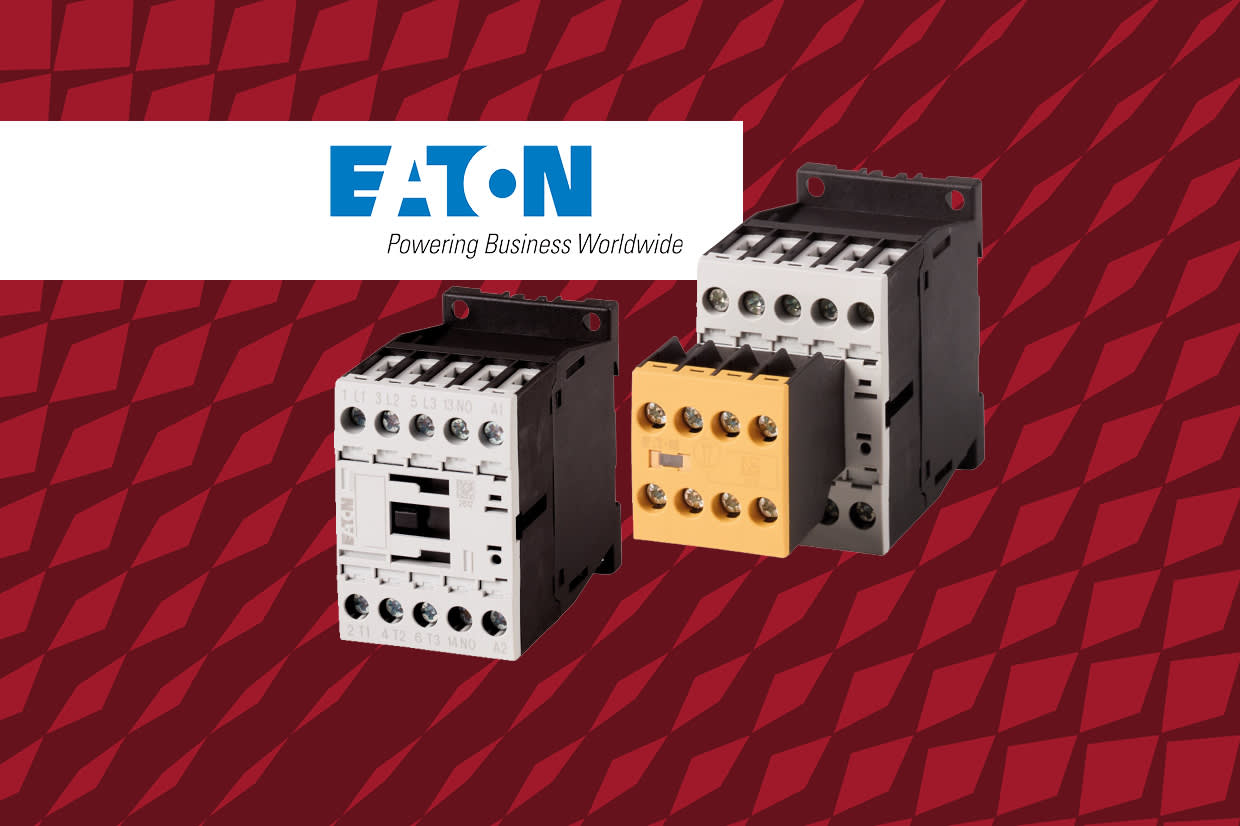Eaton DILM Contactor, 440 V ac Coil, 4-Pole, 200 A
- RS Stock No.:
- 221-3486
- Mfr. Part No.:
- 109869 DILMP63(RDC24)
- Brand:
- Eaton

Subtotal (1 unit)*
£320.27
(exc. VAT)
£384.32
(inc. VAT)
FREE delivery for orders over £50.00
In Stock
- 2 unit(s) ready to ship
Need more? Click ‘Check delivery dates’ to find extra stock and lead times.
Units | Per unit |
|---|---|
| 1 + | £320.27 |
*price indicative
- RS Stock No.:
- 221-3486
- Mfr. Part No.:
- 109869 DILMP63(RDC24)
- Brand:
- Eaton
Specifications
Technical Reference
Legislation and Compliance
Product Details
Find similar products by selecting one or more attributes.
Select all | Attribute | Value |
|---|---|---|
| Brand | Eaton | |
| Coil Voltage | 440 V ac | |
| Number of Poles | 4 | |
| Contact Current Rating | 200 A | |
| Range | DILM | |
| Select all | ||
|---|---|---|
Brand Eaton | ||
Coil Voltage 440 V ac | ||
Number of Poles 4 | ||
Contact Current Rating 200 A | ||
Range DILM | ||
Eaton Contactor, 200A Contact Current Rating, 4 Poles - DILM Series - 109869 DILMP63(RDC24)
Install this 4-pole contactor from Eaton to reliably turn your circuits on and off. As it has a mechanical operating frequency of 5,000 operations per hour, it delivers consistent performance to limit unnecessary downtime. Its rated impulse withstand voltage of 8000V AC means it can handle powerful surges. For improved electrical safety, the unit has integrated short-circuit protection, helping to prevent damage to your equipment. A finger-safe housing shields you from direct contact with live components for enhanced workplace safety. This component is suitable for use in applications such as thermal evaporators, motors and transformers.
Features & Benefits
• Screw terminals for a simple and secure electrical connection, even where vibration is likely
• Wide operating temperature range between -25°C and +60°C for use in demanding conditions
• Wide operating temperature range between -25°C and +60°C for use in demanding conditions
What could cause a contactor to fail?
Several problems, such as excess inrush current, unstable control voltages and low transition times between high peak currents, might cause contactor failure. These can cause the contacts to fuse or the coil to burn. To prevent these issues, you should be sure to operate the contactor at the correct voltage and current.
Note
Eaton formerly known as Moeller


